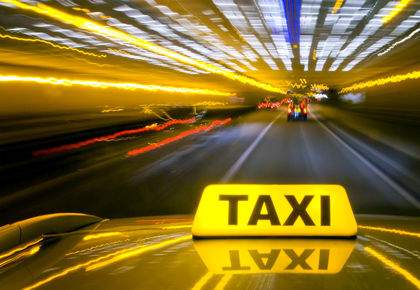When it comes to getting around, one of the most significant decisions many people face is whether to buy a car or rely on taxis for their transportation needs. Each option has its advantages and drawbacks, but the key question often boils down to which is more economical in the long run. Let’s break down the costs and benefits of each to help you make an informed decision.
Buying a Car: Costs and Considerations
1. Upfront Costs
- Purchase Price: The most significant initial expense is the cost of the car itself. This can range from a few thousand dollars for a used car to tens of thousands for a new one.
- Registration and Taxes: When you buy a car, you must also pay registration fees and taxes, which can add a substantial amount to the initial cost.
2. Ongoing Expenses
- Fuel: The cost of fuel varies depending on your driving habits and fuel prices, but it’s a consistent expense.
- Maintenance and Repairs: Regular maintenance (oil changes, tire rotations, etc.) and unexpected repairs are part of car ownership.
- Insurance: Car insurance is mandatory in most places and can be a significant monthly or yearly expense.
- Depreciation: Cars lose value over time, which is an often-overlooked cost of ownership. New cars depreciate faster than used ones.
3. Convenience and Flexibility
- 24/7 Availability: Your car is always available, providing unmatched convenience and flexibility.
- Long-term Investment: Owning a car can be seen as a long-term investment, especially if you plan to keep it for several years.
Hiring Taxis: Costs and Considerations
1. Upfront Costs
- No Initial Investment: There are no purchase costs, registration fees, or taxes when you use taxis.
2. Ongoing Expenses
- Fare Costs: Taxi fares depend on the distance travelled and the time spent in the car. These costs can add up quickly, especially for long or frequent trips.
- Surge Pricing: Ride-hailing apps often implement surge pricing during peak hours, which can significantly increase your transportation costs.
- No Maintenance or Insurance: One of the main benefits of using taxis is that you don’t have to worry about maintenance, repairs, or insurance.
3. Convenience and Flexibility
- Availability: While taxis are generally available in most urban areas, there may be times when finding a cab is difficult, especially during peak hours or in less populated areas.
- Wait Times: Depending on where you are, you might have to wait for a taxi to arrive, which can be inconvenient.
Comparing the Two: Which is More Economical?
1. Cost Analysis
- Short-Term vs. Long-Term: In the short term, using taxis may seem cheaper because there are no upfront costs. However, in the long term, the cumulative cost of frequent taxi rides can surpass the total cost of owning a car.
- Usage Frequency: If you drive daily or take long trips regularly, buying a car is usually more economical. Conversely, if you only need transportation occasionally, taxis may be cheaper.
2. Lifestyle and Location
- Urban vs. Rural: In densely populated urban areas with reliable taxi services and public transportation, relying on taxis can be more practical and economical. In rural or suburban areas where taxis are less available, owning a car might be necessary.
- Convenience Needs: If you value the convenience of having a car at your disposal at all times, owning a car is the way to go. If you prefer not to deal with the responsibilities of car ownership, taxis provide a hassle-free alternative.
Conclusion
Ultimately, the decision between buying a car and hiring taxis depends on your personal circumstances, including your transportation needs, budget, and lifestyle. For frequent travellers and those living in areas with limited taxi availability, owning a car is likely more economical. For occasional travellers or those in urban areas with robust taxi services, hiring taxis might be the better option. Carefully consider your habits and financial situation to determine which choice offers the best balance of cost, convenience, and flexibility for you.


